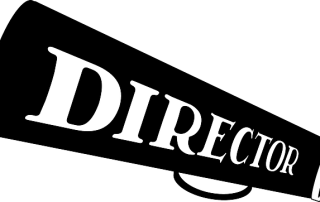5 Tips for Staying Healthy During Long Voiceover Recording Sessions
Whether it’s a long-form narration project or an audio book, spending consecutive hour upon hour in your recording studio can take its toll on your body! In order to perform your best, your body needs to be in good shape too so here are some suggestions for staying shape during VO performance marathons…
- Stay hydrated – I know it’s said over and over again, but especially when you’re in your booth for prolonged periods, hydration is hugely important. Water is of course the “transport vehicle” of nutrients to your muscles. In order to move and flex your muscles, you need water. And if you’re sitting for long periods of time, adequate water helps to get electrolytes to your muscles to avoid cramping. So hydrate well for several hours prior to getting in your booth for a long recording session and keep that water at hand to periodically moisten the throat and vocal chords.
- Nourishment – Although it’s not a great idea to eat right before a long sesh in the recording booth, make sure that at least a couple of hours prior you take in some food! Not only will this give your brain the energy it needs to comprehend the text you’re working with, there’s nothing worse than having to re-record because your mic picked up stomach growls! That recently happened to me during an audio book recording session and I didn’t realize it until I was in post-production and of course that meant extra time correcting that awful noise! You don’t want to have eaten anything too heavy though as that could lead to drowsiness.
- Stretching – This tip is applicable to pretty much anything that requires prolonged periods of sitting, be it on an airplane, at a desk or in the recording booth. But in any of those circumstances, stretching really helps the body make it through these periods of relative inactivity more healthfully. Stretching improves muscle elasticity, helps to release toxins from the muscles and improves blood flow to the muscles – all of which are incredibly important for the voiceover artist who is working on a long project. While working on an audio book recently, I started to make a lot of silly mistakes. I realized that it was time to take a quick break so I stood up and did about three minutes of stretching. My audio was pretty much error-free after that. It really improves brain function as well!
- Deep Breathing – I can’t overstate the importance of this tip! Deep breathing does so many incredibly beneficial things to the body and all of them help make a VO performance that much better. Deep breathing releases endorphins throughout the body so you’ll feel even better about what you’re doing which helps you to do it well. Deep breathing helps remove toxins from the internal organs and of course the increased flow of oxygen in the bloodstream increase our energy levels. To make it successfully through hours of recording, energy is key so don’t forget to breath deeply!
- Take A Break – When you’re focusing on pages and pages of copy, it’s easy to lose focus. Taking a quick break helps us from getting bored (unfocused). Some experts recommend working for 20 minutes and then breaking for 5 to 8 minutes. If that’s too long for you, try recording for 20 minutes and then stand up, stretch and move around for at least two minutes. This will help you stay focused, avoid back pain and just keep you stimulated and excited about your work. I always know when a break is appropriate because my mouth starts to make mistakes. If I step away for a moment and move around, I generally can get back to recording with no problems.
Long projects and audio books can be extremely rewarding and very fun to perform. Just make sure that you take care of your body properly so that your voice can keep up with the pace. Since we generally work by ourselves in virtual darkness for long periods of time, staying active and healthy – both mentally and physically – is very important. Stay well and be of good voice!


